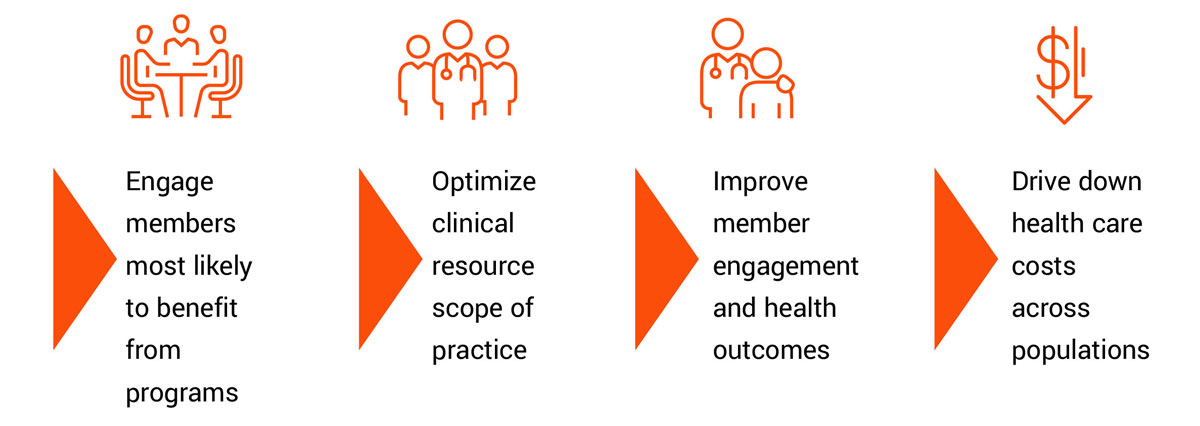Digital Healthcare Operations: Case management
Reduce administrative tasks so case managers can focus on providing care
In today’s healthcare environment, clinical and non-clinical teams can spend more than one-third of their time on administrative tasks as part of the case management process. This work often requires accessing multiple systems and an excessive amount of manual tasks. Applying additional non-clinical or clinical staffing, and digital technology solutions, such as AI and automated communications, reduces manual work so your case managers can focus on providing care to improve the health of targeted, high-risk patient populations.
Several parts of the case management process can benefit from digital technology:

Structure leads to digitization
Because case management is so structured, several parts of it are highly amenable to digitization. Case management begins with the identification of the population at the highest risk, perhaps because they have chronic conditions, a history of medication-adherence issues or other complicating factors. Machine learning-driven algorithms can help to identify these members, but AI can also integrate multiple data sources, including social determinants of health (SDOH) data, to find the members most likely to not only benefit from case management because of their risk levels but also engage.
“When technology is used for manual tasks, clinical case managers can spend their time engaged in the aspects of clinical care that brings them joy and satisfaction. This means working one-on-one with patients and members to help with goal setting and then developing a care plan that will enable them to achieve those goals.”
Mary Beth Newman
Senior Assistant Vice President,
Clinical Products, EXL Health
About EXL Health
EXL Health creates value by delivering tailored care management solutions to maximize clinical resources and improve outcomes. Our digital-first approach combined with additional staffing resources helps to drive transformation across case management, allowing our clients to:

Work with EXL Health and produce results that matter.To learn more, visit EXLService.com/health.
